As the demand for home repair and care services continues to rise, individuals looking to launch a thriving business in this sector face numerous challenges. From acquiring the right skills and qualifications to establishing a strong reputation and staying up-to-date with the latest developments in appliance technology, the path to success is fraught with complexities. For those seeking to embark on this journey, understanding the essential steps to launch a successful home repair and care business is crucial. In this comprehensive guide, we will delve into the world of appliance technician training, exploring the key skills and qualifications required to succeed in this field, and providing valuable insights into establishing yourself as a reliable and skilled appliance technician.
Whether you’re looking to become a certified appliance technician or launch a home repair and care business, this article will provide you with the knowledge and expertise necessary to navigate the industry with confidence. By the end of our exploration, you’ll have a clear understanding of the essential steps to take, the skills and qualifications required, and the ongoing training and education necessary to stay ahead of the curve in this rapidly evolving field.
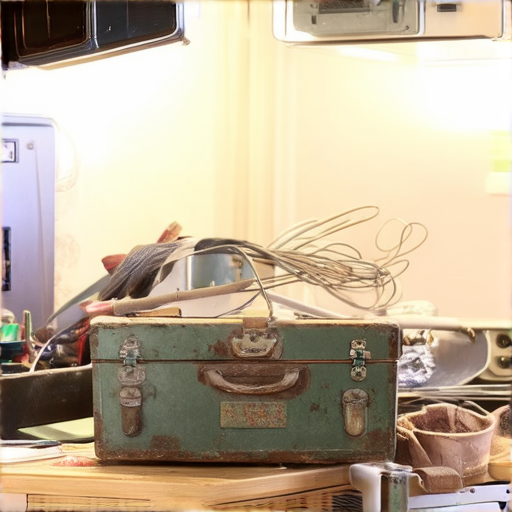
Becoming a Certified Appliance Technician: A Comprehensive Guide to Launching a Successful Home Repair and Care Business
Getting started with a career as a certified appliance technician requires careful planning, dedication, and a solid understanding of the necessary skills and knowledge.
Step 1: Meet the Basic Requirements
- Age requirement: You must be at least 18 years old to apply for most certification programs.
- Education: A high school diploma or equivalent is typically required for certification programs.
- Criminal background check: Some states require a criminal background check before issuing a certification license.
Step 2: Choose a Certification Program
- National Center for Construction Education and Research (NCCER): Offers a comprehensive training program in appliance repair and installation.
- International Association of Electrical Inspectors (IAEI): Provides certification in electrical inspection and testing.
- Appliance Service Council (ASC): Offers certification in appliance service and repair.
Step 3: Complete the Required Training Hours
- Average training hours: Most certification programs require 300-500 hours of training, which can take several months to complete.
- Hands-on training: Many programs include hands-on training, allowing you to practice your skills under the supervision of experienced technicians.
- Theoretical training: Programs may also cover theoretical aspects of appliance repair and maintenance.
Step 4: Pass the Certification Exam
- Exam format: Exams typically consist of multiple-choice questions and hands-on tests.
- Passing score: Scores vary depending on the certification program, but generally, you need to pass with a minimum score of 70%.
- Exam fees: Fees vary depending on the certification program, but expect to pay around $100-$200 per exam.
Step 5: Gain Practical Experience
- Internship: Consider completing an internship with an experienced appliance technician to gain hands-on experience.
- Volunteer work: Volunteer to help friends and family members with appliance repairs to build your portfolio.
- Join online forums: Participate in online forums and discussion groups to stay up-to-date with the latest techniques and technologies.
Step 6: Obtain Licenses and Permits
- Licenses: Check with your state licensing board to determine if you need a license to operate as an appliance technician.
- Permits: Obtain necessary permits and certifications to work on specific types of appliances, such as refrigerators or air conditioners.
Step 7: Build Your Business
- Develop a business plan: Create a comprehensive business plan outlining your goals, target market, and financial projections.
- Establish a reputation: Build a strong reputation by delivering excellent customer service and providing high-quality work.
- Market your services: Advertise your services through social media, flyers, and local directories.
Additional Tips
- Stay up-to-date with industry developments: Attend workshops, conferences, and seminars to stay current with the latest techniques and technologies.
- Invest in quality tools: Invest in high-quality tools and equipment to ensure efficient and effective work.
- Consider liability insurance: Protect yourself and your business with liability insurance.
What Essential Steps Can I Take to Establish Myself as a Reliable and Skilled Appliance Technician?
To become a reliable and skilled appliance technician, there are several essential steps you can take:
- Gain Practical Experience: Start by working under the guidance of an experienced technician to gain hands-on experience and learn the fundamentals of appliance repair.
- Develop Key Skills: Acquire skills in areas such as electrical work, plumbing, and mechanical repair, which are commonly required for appliance maintenance and repair.
- Obtain Industry Certifications: Consider obtaining certifications from organizations such as the National Kitchen and Bath Association (NKBA) or the International Association of Electrical Inspectors (IAEI), which demonstrate your expertise and commitment to the profession.
- Stay Current with Industry Advancements: Regularly attend workshops, seminars, and conferences to stay updated on the latest technologies, techniques, and products in the field of home repair and care.
- Build a Strong Network: Connect with other professionals in the industry to share knowledge, resources, and best practices, which can lead to new opportunities and collaborations.
Ongoing Training and Education for Staying Up-to-Date in the Field
Staying current in the field of home repair and care requires ongoing training and education. Some ways to achieve this include:
- Manufacturer-Specific Training: Many manufacturers offer training programs for technicians who want to specialize in repairing specific brands or models of appliances.
- Online Courses and Webinars: Websites such as Udemy, Coursera, and edX offer a wide range of courses and webinars on topics related to home repair and care, including appliance repair and maintenance.
- Industry Conferences and Workshops: Attend conferences and workshops organized by industry associations and organizations to stay updated on the latest technologies, techniques, and products.
- Continuing Education Credits: Pursue continuing education credits through organizations such as the National Institute for Certification in Engineering Technologies (NICET) or the American Society of Plumbing Engineers (ASPE).
Importance of Citing Authoritative Sources
When researching and writing about home repair and care, citing authoritative sources is crucial for credibility and accuracy. Some examples of authoritative sources include:
- Academic Research: Peer-reviewed journals and academic papers published by reputable institutions.
- Industry Associations: Organizations such as the National Kitchen and Bath Association (NKBA) or the International Association of Electrical Inspectors (IAEI).
- Government Websites: Official government websites, such as the U.S. Department of Energy or the Consumer Product Safety Commission.
Replicating the Content Structure
The following structure can be replicated to enhance the clarity and readability of the content:
- Introduction: Provide a brief overview of the topic and its importance.
- Main Content: Break down the main content into smaller sections or subtopics, each with its own heading and supporting evidence.
- Conclusion: Summarize the main points and reiterate the importance of the topic.
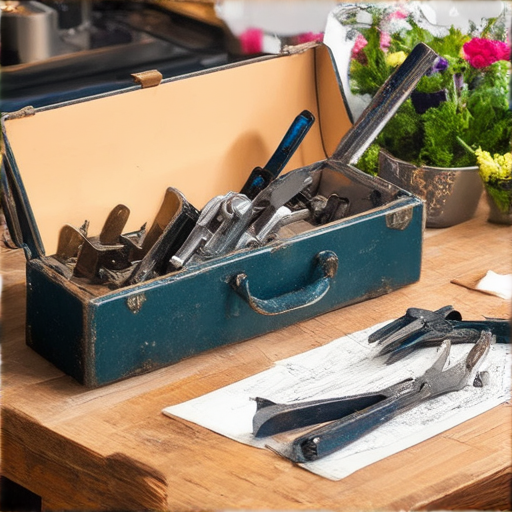
Key Skills and Qualifications Required to Become a Competitive and Successful Appliance Technician
To excel in the home repair and care industry as an appliance technician, you must possess a combination of technical skills, soft skills, and certifications. Here are some essential requirements to consider:
- Technical Skills:
- Electrical knowledge: Familiarize yourself with electrical systems, circuit diagrams, and safety protocols.
- Plumbing expertise: Understand water supply lines, drainage systems, and gas connections.
- Appliance repair techniques: Develop hands-on skills in repairing various appliances, including refrigerators, ovens, dishwashers, and washing machines.
- Diagnostic tools: Learn to use diagnostic equipment, such as multimeters, oscilloscopes, and thermal imaging cameras.
- National Appliance Service Technician Certification (NASTeC): Obtain certification from the National Association of Service Technicians (NAST) to demonstrate your competence.
- Local licenses and permits: Check with local authorities to obtain necessary licenses and permits to operate as an appliance technician in your area.
- Customer service skills: Develop strong communication and interpersonal skills to interact effectively with customers and resolve issues efficiently.
- Time management and organization: Learn to prioritize tasks, manage time effectively, and maintain organized records.
- Problem-solving and analytical skills: Cultivate critical thinking and problem-solving abilities to diagnose and repair complex appliance issues.
- Stay up-to-date with industry developments: Attend workshops, seminars, and conferences to stay informed about new technologies, products, and best practices.
- Understand energy efficiency and sustainability: Familiarize yourself with energy-efficient appliances and sustainable practices to offer eco-friendly solutions to customers.
By acquiring these essential skills, certifications, and knowledge, you can establish yourself as a competitive and successful appliance technician in the home repair and care industry.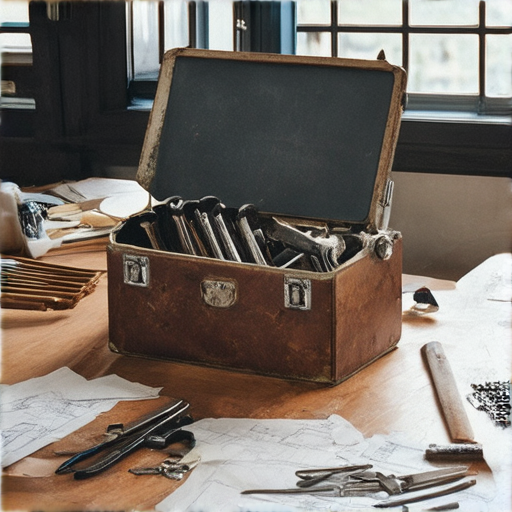
Essential Skills and Qualifications Required to Become a Successful Appliance Technician
Becoming a successful and in-demand appliance technician requires a combination of technical knowledge, practical skills, and attention to detail.
Key Skills and Qualifications:
- Technical Knowledge: A solid understanding of electrical systems, circuit analysis, and appliance mechanics is crucial for diagnosing and repairing complex issues.
- Practical Skills: Proficiency in tools such as multimeters, oscilloscopes, and diagnostic equipment is essential for effective troubleshooting and repair.
- Communication Skills: Effective communication with customers, explaining repairs and maintenance needs, is vital for building trust and establishing long-term relationships.
- Certification and Licensing: Obtaining certifications such as NATE (North American Technician Excellence) or EPA (Environmental Protection Agency) certification demonstrates expertise and commitment to staying up-to-date with industry standards.
- Physical Demands: Appliance technicians often work in cramped spaces, lift heavy equipment, and may be exposed to hazardous materials, requiring physical stamina and adaptability.
Industry-Specific Certifications and Training Programs:
- The National Kitchen and Bath Association (NKBA) offers certification programs for kitchen and bath professionals, including appliance technicians.
- The International Association of Electrical Inspectors (IAEI) provides training and certification for electrical inspectors and technicians.
- The United States Environmental Protection Agency (EPA) offers training and certification for technicians working with refrigerants and other hazardous substances.
Staying Current with Industry Trends and Developments:
- Attend workshops and conferences to stay updated on the latest technologies and techniques.
- Participate in online forums and discussion groups to network with peers and share knowledge.
- Subscribe to industry publications and newsletters to stay informed about product releases, regulatory changes, and market trends.
Academic and Vocational Education:
- Associate’s degrees or vocational training programs in appliance repair, electrical technology, or related fields can provide a solid foundation for a career as an appliance technician.
- Many community colleges and trade schools offer courses and certifications in appliance repair, electrical theory, and safety procedures.
By combining these essential skills and qualifications, aspiring appliance technicians can set themselves up for success in the competitive home repair and care industry.
Essential Skills and Qualifications Needed to Launch a Successful Home Repair and Care Business as an Appliance Technician
To establish a reputable and profitable home repair and care business as an appliance technician, several key skills and qualifications must be acquired. These include:
- Technical Knowledge: A deep understanding of various home systems, including plumbing, electrical work, and heating, ventilation, and air conditioning (HVAC) systems, is crucial for diagnosing and repairing complex issues.
- Certification and Licensing: Obtaining relevant certifications and licenses, such as those offered by the National Institute for Certification in Engineering Technologies (NICET), can significantly enhance credibility and job prospects.
- Communication Skills: Effective communication is vital for explaining technical concepts to clients, resolving issues efficiently, and building trust in the business.
- Problem-Solving Abilities: Appliance technicians must possess strong problem-solving skills to diagnose and fix intricate problems quickly and accurately.
- Physical Stamina and Dexterity: Working in cramped spaces, lifting heavy equipment, and performing manual labor require physical stamina and dexterity.
- Business Management Skills: Managing the day-to-day operations of a home repair and care business, including scheduling, customer service, and financial management, requires organizational and leadership skills.
In addition to these essential skills and qualifications, staying up-to-date with industry developments and advancements through ongoing education and training is vital for maintaining expertise and delivering high-quality services.
According to the Bureau of Labor Statistics (BLS), employment of appliance technicians is projected to grow 10% from 2020 to 2030, driven by increasing demand for home repairs and maintenance services. By acquiring the necessary skills and qualifications, aspiring appliance technicians can capitalize on this growth opportunity and establish a successful and rewarding career in the field.
Sources:
– National Institute for Certification in Engineering Technologies (NICET)
– Bureau of Labor Statistics (BLS)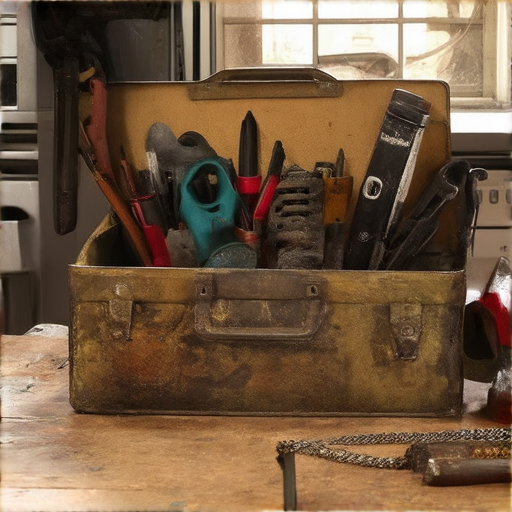
Essential Skills and Qualifications for a Competitive Appliance Technician
Becoming a successful appliance technician requires a combination of technical knowledge, hands-on skills, and business acumen.
Technical Skills:
- Electrical Safety: Understanding electrical systems, circuit analysis, and safety protocols is crucial for working with appliances that involve electricity.
- Plumbing Knowledge: Familiarity with water supply lines, drainage systems, and gas connections is necessary for repairing and maintaining appliances that rely on these systems.
- Appliance Troubleshooting: Developing problem-solving skills to diagnose and repair complex issues with various types of appliances is essential for success in this field.
- Mechanical Aptitude: Understanding mechanical principles, such as thermodynamics and mechanics, can help technicians troubleshoot and repair appliances with mechanical components.
- Computer Literacy: Proficiency in computer-aided design (CAD) software, diagnostic tools, and other digital technologies can enhance efficiency and accuracy in appliance repair.
Soft Skills:
- Communication Skills: Effective communication with customers, colleagues, and suppliers is vital for building trust, resolving issues, and delivering excellent customer service.
- Time Management and Organization: Ability to manage multiple tasks, prioritize jobs, and maintain organized records is essential for meeting deadlines and managing a busy schedule.
- Problem-Solving and Adaptability: Developing strong problem-solving skills and being adaptable to changing situations can help technicians respond effectively to unexpected challenges.
- Continuous Learning: Commitment to ongoing education and training ensures technicians stay up-to-date with the latest technologies, techniques, and industry developments.
Certification and Education:
- Postsecondary Education: Pursuing a degree or diploma in a related field, such as appliance technology or engineering, can provide a solid foundation for a career as an appliance technician.
- Industry Certifications: Obtaining certifications from organizations like the National Institute for Certification in Engineering Technologies (NICET) or the International Association of Electrical Inspectors (IAEI) demonstrates expertise and commitment to the profession.
Additional Recommendations:
- Gain Practical Experience: Working under the guidance of an experienced technician or completing an apprenticeship program can provide valuable hands-on experience and help build confidence in technical abilities.
- Join Professional Associations: Membership in organizations like the Air-Conditioning, Heating, Refrigeration Certification Board (ACHR) or the National Kitchen and Bath Association (NKBA) offers opportunities for networking, professional development, and staying informed about industry trends.
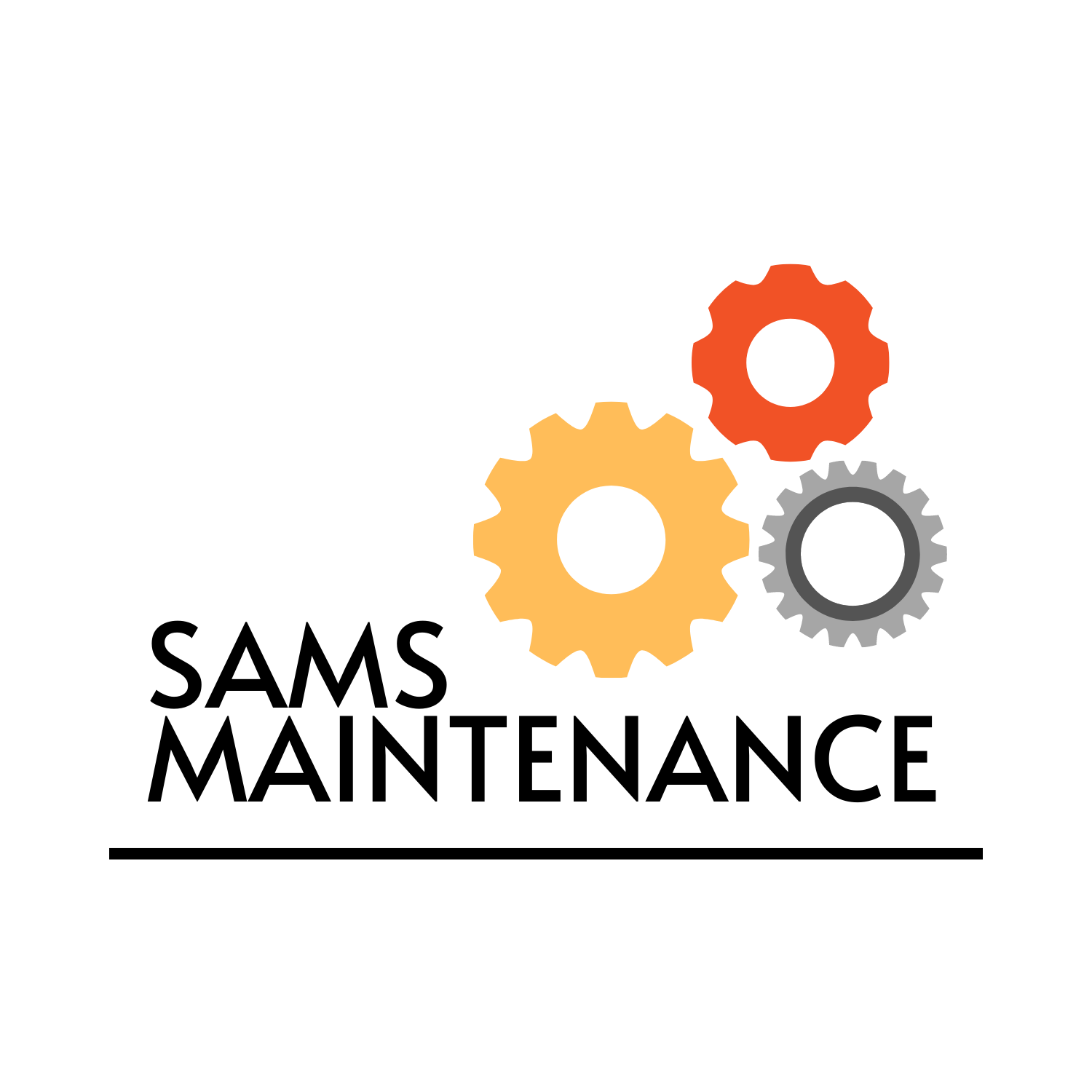
0 Comments